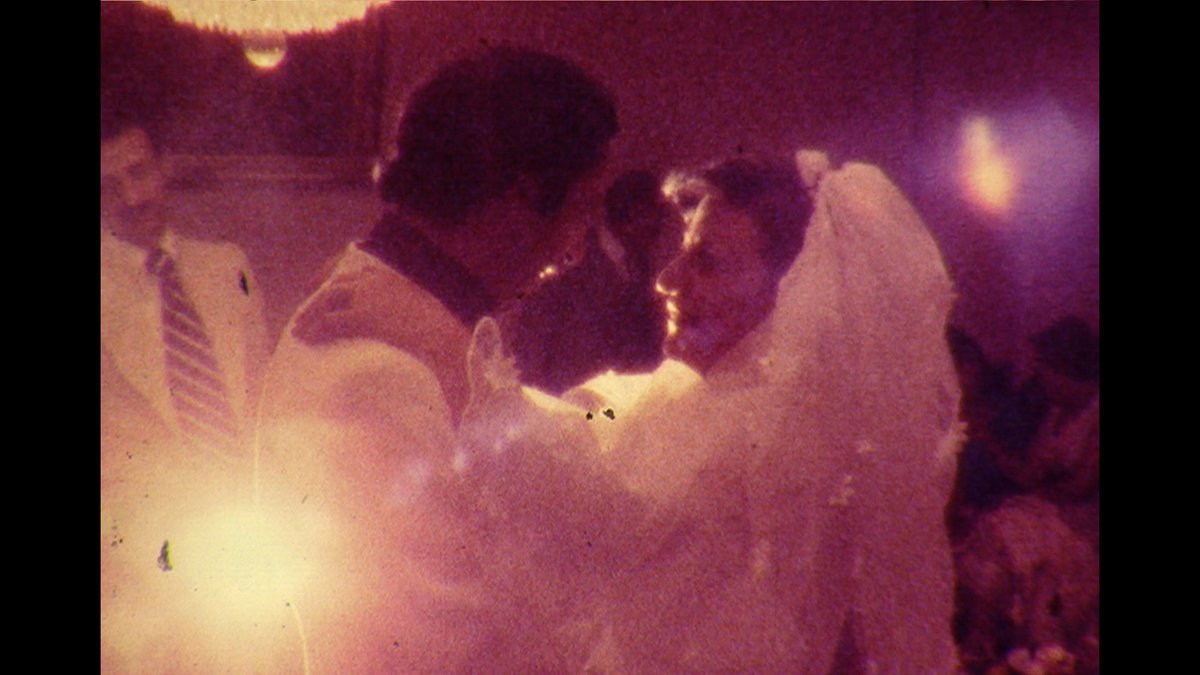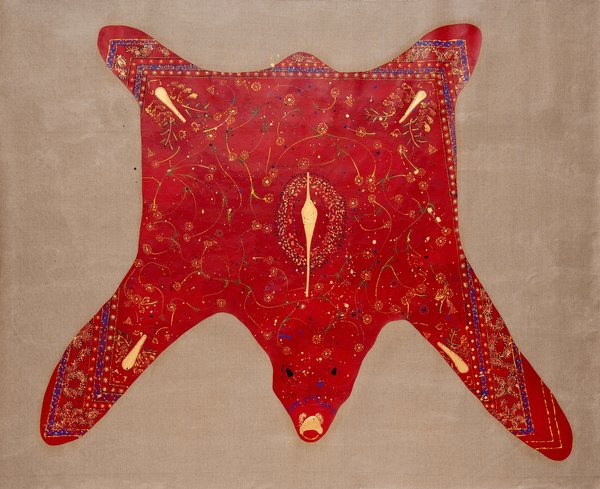The Wedding by Elham Rokni
8 mm film and HD
12:30 min, 2015
This video is no longer available for viewing. It was presented from April 1-30, 2023 as part of the video art screening program Dancing on Tec(h)tonic Plates.

About the Work
In The Wedding by Elham Rokni, the artist attempts to discover the precise date of her parents' marriage. Married in 1978 pre-revolutionary Tehran, neither her father nor her mother could recall the exact date of the event. The wedding celebration took place at home because there were riots in Tehran at the time. In the video, Rokni speaks with her mother, father, and uncles, who each propose different dates for when the wedding took place, each one of them for different reasons. Each of the dates that they suggest coincides with an important date in Iranian history, such as the student takeover of the American Embassy. This research led Rokni to find the ketubah–a written marriage agreement that is common in traditional Jewish marriages–which reveals a precise date. However, Rokni quickly learns that this date does not align with the actual date of the wedding ceremony, because the marriage took place “six or seven days” after the signing of the ketubah. The video follows the artist through her research and documents her ongoing frustration from the inconsistent reports. The Wedding is witness to Rokni’s attempt to weave a narrative of family history through clouded memories and displaced documents.
Artist Bio
Elham Rokni was born in Tehran, Iran, and immigrated to Israel at the age of 9. She is a graduate of Bezalel Academy of Arts and Design's BFA and MFA programs, and she has been a professor in the art department at the Bezalel Academy since 2013. Rokni has held solo exhibitions and has participated in group shows and film festivals worldwide. Her works can be found in public and private collections.
Rokni’s work explores the relationship between memories, space, and movement, specifically among refugee and immigrant communities. Through her practice, she examines memory as a way to reconnect to one's past, and the emotional nature of this experience.
In her drawings and paintings, Rokni repeatedly constructs and deconstructs patterns, colors, and shapes that are associated with her childhood memories and family albums. In her practice, she is interested in bringing together her personal experience as an immigrant with urgent political and ethical issues. Her work explores the actions and notions of accessibility in relation to the free movement—and lack of movement—that exists in a globalized world, including the movement of goods, products, services, and sometimes, people.
